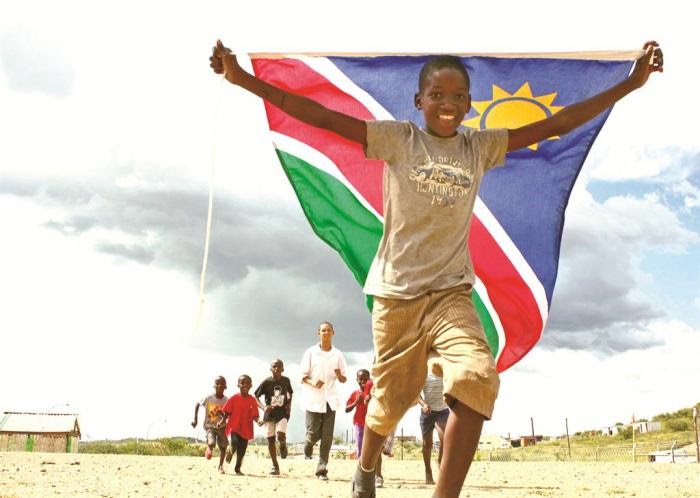Namibia has been inhabited since prehistoric times by the San, Damara, and Nama.
14th Century AD – Bantu people begin to arrive during the Bantu expansion from central Africa.
18th Century – Oorlam people from Cape Colony cross the Orange River and move into southern Namibia.
1878 – The British colony of the Cape of Good Hope annexes the port of Walvis Bay and the offshore Penguin Island, which become part of the new Union of South Africa in 1910.
1886-90 – Present international boundaries established by German treaties with Portugal and Britain. Germany annexes the territory as South West Africa.
1904-1907 – the Herero and Nama resist German colonialism. German forces brutally supress the uprising and systematically kill 10,000 Nama and some 65,000 Herero – in what is now acknowledged as genocide.
1915 – South Africa takes over territory during World War One.
1920 – League of Nations grants South Africa mandate to govern South West Africa (SWA).
1946 – South Africa refuses to place SWA under UN trusteeship.
1958 – Herman Toivo Ya Toivo and others create the opposition Ovamboland People’s Congress, which becomes the South West Africa People’s Organisation (Swapo) in 1960.
1961 – UN General Assembly demands South Africa terminate the mandate and sets SWA’s independence as an objective..
1966 – South West Africa People’s Organisation (Swapo) launches armed struggle against South African occupation.
1968 – South West Africa officially renamed Namibia by UN General Assembly.
1973 – UN General Assembly recognises Swapo as “sole legitimate representative” of Namibia’s people.
1970s – Namibia became one of several flashpoints for Cold War proxy conflicts in southern Africa. The USSR and Cuba send military support to Swapo’s armed wing, the People’s Liberation Army of Namibia (PLAN).
1988 – Growing war weariness and the reduction of tensions between the superpowers compels South Africa, Angola and Cuba to accede to the Tripartite Accord. South Africa agrees to Namibian independence in exchange for removal of Cuban troops from Angola.
1990 – Namibia becomes independent, with Sam Nujoma as first president.
1994 – South African exclave of Walvis Bay turned over to Namibia.
1999 – Government quashes a secessionist attempt in the northeast Caprivi Strip by the rebel Caprivi Liberation Army.
2004 – Germany a form of apology for its colonial-era mass-killings.
2022 – Estimates suggest that two exploration wells in the offshore Orange Basin could hold two and three billion barrels of oil, respectively. The expected revenue could transform Namibia’s economy.
-Compiled from various sources



